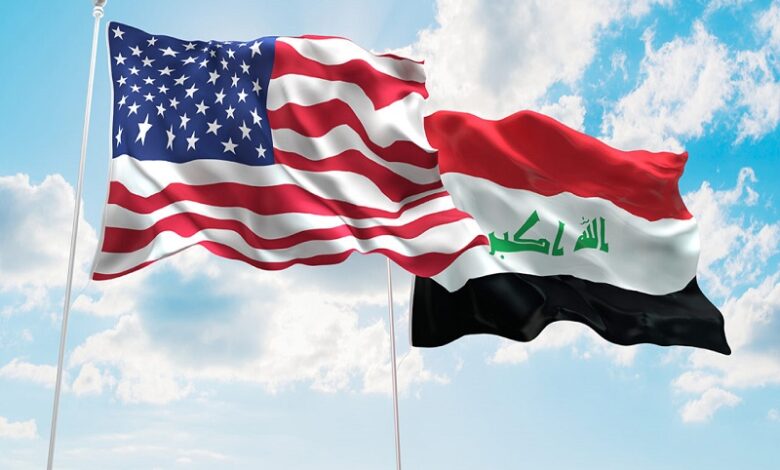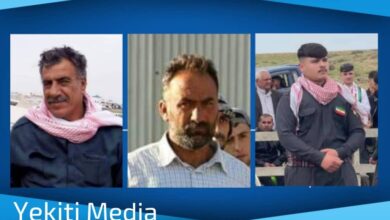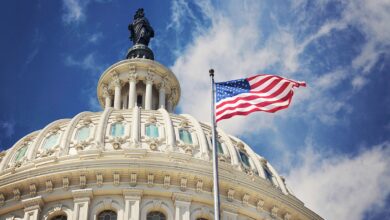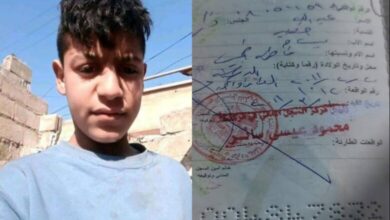
Joint Statement on the U.S.-Iraq Strategic Dialogue
Yekiti Media
The text of the following statement was released by the Governments of the United States of America and the Republic of Iraq.
The delegation of the Republic of Iraq, led by Senior Under Secretary of the Ministry of Foreign Affairs Abdul-Karim Hashim Mostafa, and the delegation of the United States Government, led by Under Secretary of State for Political Affairs David Hale, held Strategic Dialogue discussions via video teleconference today, in accordance with the 2008 Strategic Framework Agreement for a Relationship of Friendship and Cooperation between the United States of America and the Republic of Iraq. The discussions covered security and counterterrorism, economics and energy, political issues, and cultural relations.
The two countries reaffirmed the principles agreed upon by the two sides in the Strategic Framework Agreement (SFA), as well as the principles in the exchange of diplomatic notes and the letters of the Republic of Iraq to the United Nations Security Council dated 25 June 2014 (S/2014/440) and 20 September 2014 [S/2014/691] respectively. The United States reaffirmed its respect for Iraq’s sovereignty, territorial integrity, and relevant decisions of the Iraqi legislative and executive authorities.
On economic and energy issues, the two countries recognized the enormous economic challenges facing Iraq in light of the two crises of the COVID-19 pandemic and the decline in oil prices, and on the need for Iraq to enact fundamental economic reforms. The United States discussed providing economic advisors to work directly with the Government of Iraq to help advance international support for Iraq’s reform efforts, including from the international financial institutions in connection with firm plans to enact fundamental economic reforms. The two governments discussed the potential for investment projects involving world-class U.S. firms in the energy and other sectors, provided that business conditions are favorable.
On political issues, the United States of America expressed its solidarity with the Republic of Iraq, not only through close bilateral cooperation on the security and political levels, but also through its support for Iraq and the new Iraqi government. The two nations reiterated the importance of assisting Iraq in implementing its governmental program and reforms in a manner that reflects the aspirations of the Iraqi people, including carrying out humanitarian efforts, restoring stability, rebuilding the country, and organizing free, fair and credible elections. The United States, with its international partners, emphasized its continued support for Iraq’s electoral preparations, efforts to strengthen rule of law, human rights, and the return and reintegration of displaced people, especially the smaller components of Iraqi society that were targeted for genocide by ISIS.
On the security partnership, the two countries recognized that in light of significant progress towards eliminating the ISIS threat, over the coming months the U.S. would continue reducing forces from Iraq and discuss with the Government of Iraq the status of remaining forces as both countries turn their focus towards developing a bilateral security relationship based on strong mutual interests. The United States reiterated that it does not seek nor request permanent bases or a permanent military presence in Iraq, as previously agreed to in the 2008 SFA which provides for security cooperation to be undertaken on the basis of mutual agreement. The Government of Iraq committed to protecting the military personnel of the International Coalition and the Iraqi facilities hosting them consistent with international law and the specific arrangements for their presence as will be decided upon by the two countries.
On the cultural front, the two governments discussed plans to return important political archives to the Government of Iraq and efforts to increase the capabilities of Iraqi universities. The two sides also discussed plans to return artifacts and the Baath Party archives to Iraq.
The two sides reaffirmed the importance of the strategic relationship and their determination to take appropriate steps to enhance it in the interest of both countries and to achieve security, stability, and prosperity in the region. The United States Government welcomed the opportunity to reaffirm and strengthen its partnership with Iraq as Prime Minister Mustafa al-Kadhimi begins his term in office. The two governments look forward to in-depth discussions of the above issues at a Strategic Dialogue Higher Coordination Committee meeting in Washington, D.C., likely in July.




